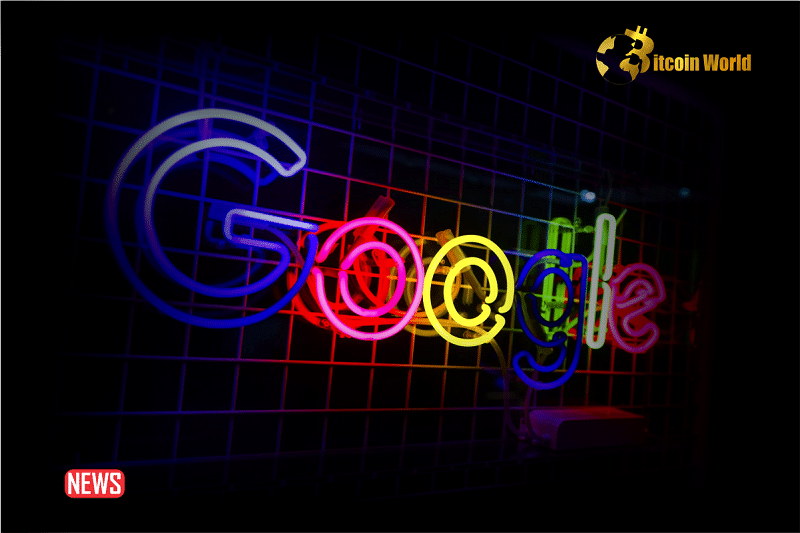The tech world is buzzing with rumors of significant shifts at Google. Whispers suggest the search giant might be considering a substantial workforce reduction – potentially impacting around 30,000 employees. The driving force behind this potential shake-up? None other than the rapid advancement and integration of Artificial Intelligence (AI) into Google’s core operations, particularly within its massive ad sales division.
This news arrives hot on the heels of Google’s groundbreaking AI developments like Gemini and Bard. While these innovations signal Google’s unwavering commitment to pushing technological boundaries, they also ignite a crucial conversation: What happens to human roles when AI steps into the spotlight?
According to a report by The Information, a pivotal meeting led by Sean Downey, Google’s head of ad sales for major US accounts, hinted at a significant restructuring of the ad sales team. While the dreaded ‘L word’ (layoffs) wasn’t explicitly uttered, the underlying message was clear: AI-driven transformation is on the horizon, potentially reshaping Google’s operational strategies.
The ad sales division appears to be the initial focal point of this AI-powered overhaul. But what exactly does this mean for Google’s future and the broader tech landscape? Let’s delve deeper.
AI-Powered Ads: The Future of Google’s Revenue Engine?
Earlier this year, Google unveiled a game-changing innovation: AI-powered ads. Imagine a system so intuitive it can understand natural language and revolutionize how ad campaigns are created. That’s precisely what Google is aiming for. This isn’t just a minor tweak; it’s a fundamental shift towards an “natural-language conversational experience within Google Ads.”
Here’s how it works and why it’s a potential game-changer:
- Simplified Campaign Creation: Forget tedious keyword research and manual asset creation. AI can now scan websites and automatically generate relevant keywords, compelling headlines, engaging descriptions, eye-catching images, and other crucial ad elements.
- Enhanced Efficiency: This automation promises to streamline the entire ad creation process, potentially saving time and resources for businesses of all sizes.
- Data-Driven Optimization: AI can continuously analyze campaign performance and make real-time adjustments, ensuring ads are not only relevant but also highly effective.
But the integration of AI extends beyond ad creation. Google is also exploring AI-powered solutions for customer care services. While this promises faster and more efficient support, it also raises questions about the future of human-centric roles in customer service. Is this the dawn of AI-driven customer support, and what does it mean for human jobs?
Pichai’s Perspective: Navigating a Challenging Landscape
Google’s CEO, Sundar Pichai, hasn’t shied away from addressing the challenging realities facing the company. Reflecting on the difficult decision to lay off 12,000 employees at the start of 2023, Pichai emphasized the need for proactive measures to secure Google’s future. He stressed that inaction could lead to even more severe consequences down the line, especially given the rapid global shifts and technological advancements.
Pichai’s message underscores a critical point: Adaptation is no longer optional; it’s essential for survival in the fast-paced tech industry. Google’s exploration of AI integration and potential workforce restructuring is likely a strategic move to ensure long-term competitiveness and efficiency in an increasingly automated world.
The Bigger Picture: AI, Jobs, and the Future of Work
Google’s situation is not isolated. It’s a microcosm of a larger trend impacting industries worldwide. The rise of AI is prompting a fundamental re-evaluation of job roles and the future of work itself. Key questions are emerging:
- Job Displacement: How many jobs will be automated by AI, and what types of roles are most vulnerable?
- Skills Gap: Will the workforce possess the skills needed to thrive in an AI-driven economy? What kind of reskilling and upskilling initiatives are necessary?
- Ethical Implications: How do we ensure responsible AI implementation that benefits society as a whole and mitigates potential negative impacts on employment?
- Economic Restructuring: What new industries and job roles will emerge as AI transforms existing sectors?
Google’s approach to navigating this transformation will be closely watched. The company’s decisions will not only impact its own workforce but also set a precedent for the tech industry and beyond. Will Google prioritize efficiency gains at the expense of human jobs, or will it find a balanced approach that harnesses AI’s power while supporting its workforce through reskilling and new opportunities?
The coming months will be crucial in understanding the full scope of Google’s AI strategy and its impact on its employees. One thing is clear: the conversation around AI, automation, and the future of work is only just beginning.
Implications for the Tech Industry and Beyond
This potential shift at Google is more than just company news; it’s a signal flare for the entire tech industry and the global economy. It underscores the urgent need for proactive discussions and strategies to address the evolving relationship between AI, employment, and the very fabric of work as we know it.
As Google grapples with these momentous decisions, the ripple effects of any workforce reduction will extend far beyond the company’s walls. It will resonate with broader socio-economic anxieties about the accelerating pace of AI-driven automation and its profound implications for employment dynamics worldwide. The world is watching to see how Google, a tech titan, navigates this AI revolution and what lessons can be learned for the future of work.
Disclaimer: The information provided is not trading advice, Bitcoinworld.co.in holds no liability for any investments made based on the information provided on this page. We strongly recommend independent research and/or consultation with a qualified professional before making any investment decisions.




